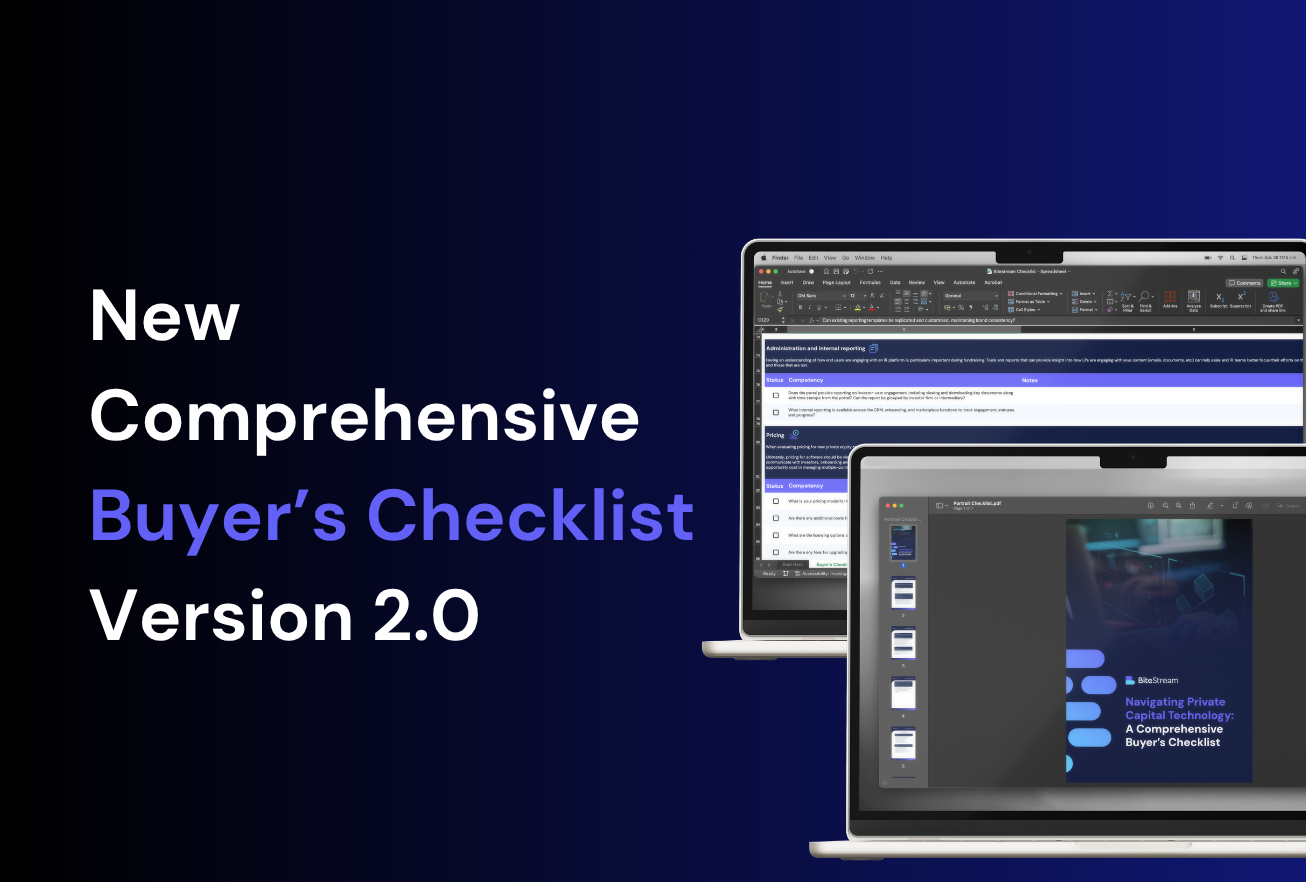
Discover how artificial intelligence (AI) is transforming private markets, why firms are looking to implement AI to streamline existing processes and potential pitfalls to watch out for when implementing this evolving technology.
The current state of transformative AI
The rise of AI over the last few years has been staggering. With the launch of several high-profile AI-based applications, such as the world-renowned Chat-GPT, the technology is reshaping industries and transforming business operations in ways once thought impossible. Private markets professionals, while initially cautious, are now implementing AI into their operations with research showing many are keen to explore the technology further. Research found strong adoption trends with 45% of investors saying they are already using AI in post-acquisition value creation plans, with another 38% planning to do so this year[1].
While the technology continues to develop with private capital managers/ General Partners (GPs) exploring how best to implement it into operations, it’s clear generative AI is set to fundamentally transform the industry. In a recent Bain & Co survey, private equity investors with approximately $3.2 trillion in AUM stated that 20% of their portfolio companies are already seeing “concrete” results from generative AI[2]. That is an incredible impact from technology which barely existed two years ago.
However, a note of caution is required as AI’s rapid evolution brings some challenges. For example, regulators and policy makers globally are taking different approaches to AI governance which will have an impact on firms. US firms will likely have looser reins during President Trump’s second term compared to the Biden administration[3]. On the other hand, firms across Europe face the introduction of the AI Act in August 2026 which could limit the use of AI across the wider financial services sector[4]. Meanwhile, APAC regulators are working on new AI regulatory frameworks with guidelines set to be published by the end of 2025[5]. To remain compliant, GPs must navigate the views and rules of regional regulators where they operate and ensure their AI plans align with them.
Real life examples and key areas where AI is transforming private markets
AI is already delivering tangible benefits across business operations[6]. When implemented effectively, AI enhances efficiency by rapidly summarizing vast amounts of data, allowing GPs to focus on mission-critical tasks.
Though many firms are still experimenting with generative AI, the most successful are investing in expertise, aligning AI with strategic goals, and tackling change management. These firms are already seeing early returns in product development, revenue growth, and operational efficiency, and are making informed decisions to leverage AI for a competitive edge[7].
The adoption of AI is expected to grow significantly in the coming years, but where are GPs focusing AI’s potential today?
1. Due diligence
AI’s ability to process massive datasets in seconds is revolutionizing deal sourcing. By quickly scanning and evaluating diverse data, AI can highlight or discount potential investments with unprecedented speed.
Apollo Global Management, for instance, uses AI and cloud technology to enhance its due diligence process[8]. AI boosts analyst productivity and helps identify high-value investment opportunities, while the firm’s cloud infrastructure consolidates data from portfolio companies for faster decision-making. These AI-powered insights provide a competitive edge in deal evaluation.
2. Assessing risk and regulatory compliance
As we mentioned, the global regulatory landscape is complex and hugely divergent. AI can help firms ensure compliance with industry standards and can detect fraudulent activities during investor / Limited Partner (LP) onboarding.
Blackstone uses AI to assess risks in potential acquisitions[9]. AI helps forecast demand, providing real-time pricing for customers using its e-commerce warehouses, while data scientists on investment teams ensure AI tools support effective deal-making decisions.
3. Investor relations
One of AI’s strengths is that it can accelerate collaboration and operational efficiency. From automating onboarding forms to using predictive models to address investor queries, AI has the potential to revolutionize the investor relations process.
Carlyle Group is leveraging AI to improve operational efficiency within investor relations[10]. Its CEO referred to AI as a “driver of growth and scale.” The firm uses it to automate tasks such as drafting personalized cold outreach emails to prospective investment targets, improving communication and engagement.
4. Portfolio management and value creation
This is a big one with massive ramifications for industry. Many GPs now think that generative AI will untap a host of value creation opportunities[11]. AI can unlock value by streamlining operational efficiency throughout portfolios. This has the potential to increase valuations dramatically when used effectively.
For instance, Vista Equity Partners uses AI to identify opportunities, expand markets, and innovate with greater efficiency[12]. At their annual meeting, Vista highlighted the potential of AI to help navigate a fast-evolving market, emphasizing that significant investment will be required to fully capitalize on these opportunities. This reflects the growing importance of AI in driving portfolio growth and investment outcomes.
5. Maximizing exit opportunities
Exiting a portfolio company at the right time is crucial yet challenging. Too early, and GPs risk missing out on growth; too late, and market conditions may turn unfavorable. AI helps by providing financial models and up-to-date market analysis, guiding GPs on optimal divestment timing.
KKR exemplifies this by employing predictive analytics to identify investment opportunities that align with its strategic objectives[13]. By analyzing market data, economic indicators, and consumer behavior, KKR forecasts trends and predicts market movements. This AI capability optimizes entry and exit points for maximum returns.
Despite its benefits, harnessing the power of AI must be done in a safe and controlled environment.
Challenges to overcome
Adopting the latest AI is set to become increasingly more complex as regulators globally rush to implement new policies that can also differ by region. Copyright and wider security concerns will also need to be considered by GPs as they continue to assess AI’s safety.
A major challenge will be figuring out AI’s integration with existing systems – especially for firms relying on outdated technology. GPs should strive to have smart, digital solutions that allow for seamless AI implementation within a secure environment. Experimentation is key, but it must be done in a way that aligns with operational stability.
AI should enhance efficiency and automate routine tasks, not replace human expertise entirely. Human judgment remains critical, and finding the right balance between AI automation and human oversight will be a key challenge.
AI predictions, key areas of focus
It’s not straightforward to predict the future of AI. GPs are already operating generative AI to drive value within their portfolios, and we only see this becoming more critical. ‘AI readiness’ will form a crucial part of the due diligence process with firms racing to find the right type of businesses where AI can unlock significant value[14].
Fundraising could be a key area of focus for AI, given the challenges it has faced over the past year paired with an unpredictable macroeconomic environment. AI can help GPs to automate a plethora of traditionally time-consuming fundraising tasks, from completion of due diligence questionnaires (DDQs) to managing the sheer volume of multiple distribution channels and documentation. AI can save investor relations professionals precious time to focus on building meaningful relationships with their investors.
Experiment to refine
AI is no longer an abstract concept of the future. GPs are already leveraging AI to streamline operations and drive greater value within their portfolios. However, there is a strong appetite to do even more with many keen to experiment with the nascent technology.
While AI adoption presents its challenges and operational risks – from divergent regional regulatory rules and requirements globally to integration issues with old cumbersome legacy systems – the rewards could be immense.
To get the best out of AI, careful implementation is crucial, including reviewing existing processes and how AI would fit within them, as well as experimenting. Not just jumping on the AI hype and trying to mitigate against any potential risks by having smart and secure systems in place. This will provide the safe environment required to truly learn how best to use this transformative technology.
Sources:
[1] Preqin, AI takes center stage as private equity investors turn to value creation – Alvarez & Marsal, June 2024
[2] Bain & Company, Field Notes from the Generative AI Insurgency in Private Equity, March 2025
[3] Reuters, Trump revokes Biden executive order on addressing AI risks, January 2025
[4] Consultancy.eu, The EU AI Act: The impact on financial services institutions, January 2025
[5] FintechNews, An Overview of AI Regulations in Financial Services Around the World, February 2025
[6] Untap, How AI is Transforming The Private Equity Industry, March 2025
[7] Bain & Company, Field Notes from the Generative AI Insurgency in Private Equity, March 2025
[8] Business Insider, Private equity giants Apollo and EQT open up on how they use AI and the cloud to improve dealmaking and boost productivity, September 2023
[9] Institutional Investor, How Blackstone Sprinted Ahead of Its Peers in AI, September 2023
[10] S&P Global Intelligence, Private equity firms take tentative steps adopting AI for their own use, August 2023
[11] Bain & Company, Creating Value with AI: The Race Is On in Private Equity, November 2024
[12] Axios, Vista Equity raises more than $20 billion for new fund, April 2024
[13] Pitchgrade, KKR: AI Use Cases, February 2024
[14] Bain & Company, Creating Value with AI: The Race Is On in Private Equity, November 2024
Disclaimer: This article is made available by BITE Investments (UK) Limited (“Bite UK”), a company incorporated in the United Kingdom (company registration number 11706620) with its registered office at 28 Ecclestone Square, London SW1V 1NZ. The information contained in this article (the “Information”) is for informational purposes only and may not be relied upon for the purposes of evaluating the merits of investing in any shares, other securities, limited partnership interests or other interests in any funds listed or referred to in the article or for any other purpose. The Information does not constitute an offer to acquire any limited partnership interests, shares or other securities, make any investment or to provide any fund management services or any investment advice of any kind, nor does this article constitute an invitation to invest, directly or indirectly, in any company or collective investment scheme, or to undertake to do so. Reliance on the Information for the purpose of engaging in any investment activity may expose the investor to a significant risk of losing all of the money invested. Nothing in this article is to be construed, and shall not be relied upon as, legal, regulatory, credit, business, tax or accountancy advice. The Information may change and there shall be no obligation on the part of Bite UK to update any of the Information. Data and facts used in this article are derived from sources which are considered to be reliable and have been compiled using Bite UK’s best knowledge. However, Bite UK does not guarantee the correctness of the Information. This article and the Information are strictly confidential and are used exclusively for a limited number of addresses. Reproduction of this article or the dissemination of this article, or the Information, to third parties, is not permitted.

Learn more about how Bite Stream can help you
Discover a solution that suits your needs





